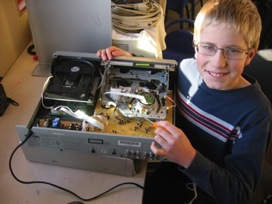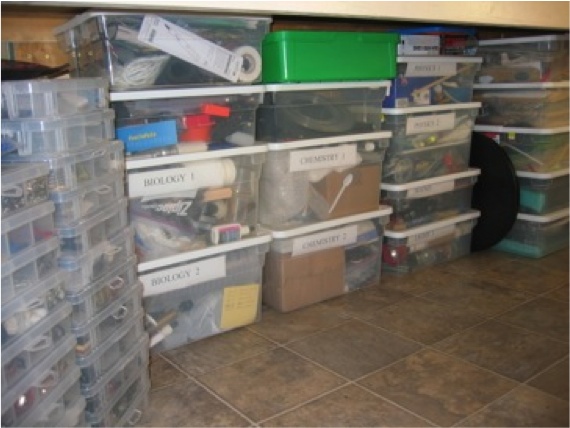I would venture to say that most people have enough interest in robots that they would give a few moments of their time to allow themselves the amusement of watching robots in action. Beyond this, I have observed that fewer people actually have enough interest in robots to wrestle with how they work and to learn what their abilities and their limitations are. I think that there also exists a middle-ground camp of those who imagine that they might have an interest in robots but they are just not sure of ‘where to start’.
Over the past century, many people have mused about having mechanical helpers of sufficient quality to make independent ‘choices’ and take relevant actions. The goal is usually to make life easier. Hence the name ‘Robot’ – which is derived from the Czech word ‘robota’, meaning drudgery (which can be described as boring, difficult or dangerous work). Robots are usually designed to make some task or aspect of life easier or safer for us. Yet, when we look around, do we see ‘robots’ in action in our daily lives? If we don’t see them – or recognize them, we are tempted to view them as being largely irrelevant. If we had an urge to study them, we might suppress that urge for fear of seeming to pursue something irrelevant. Is robotics irrelevant?Robotics is the study of science and technology relating to robots, and could also be referred to as ‘automation technology’. (Ah HA! … automation!) Thinking about robotics as a study of automation technology can help us see its relevance.If you are one whose interest leans in the direction of robotics, I encourage you to ask yourself ‘why’ and ‘what’ and ‘how’. Doing so can help you develop a methodical approach to your interest. Here are some pointers to help you on your way:Identify your interest (e.g. the mechanical sophistication of a device; the electromechanical combination of a machine; the function of electronic sensors; the logic programming that directs the interactions of a machine in its environment, etc.)Choose your tools (e.g. approach your robot set as a tool kit – not a toy; approach your computer as part of your work bench – not as an entertainment centre.) Stay organized by keeping the parts of your robot ‘kit’
Yet, when we look around, do we see ‘robots’ in action in our daily lives? If we don’t see them – or recognize them, we are tempted to view them as being largely irrelevant. If we had an urge to study them, we might suppress that urge for fear of seeming to pursue something irrelevant. Is robotics irrelevant?Robotics is the study of science and technology relating to robots, and could also be referred to as ‘automation technology’. (Ah HA! … automation!) Thinking about robotics as a study of automation technology can help us see its relevance.If you are one whose interest leans in the direction of robotics, I encourage you to ask yourself ‘why’ and ‘what’ and ‘how’. Doing so can help you develop a methodical approach to your interest. Here are some pointers to help you on your way:Identify your interest (e.g. the mechanical sophistication of a device; the electromechanical combination of a machine; the function of electronic sensors; the logic programming that directs the interactions of a machine in its environment, etc.)Choose your tools (e.g. approach your robot set as a tool kit – not a toy; approach your computer as part of your work bench – not as an entertainment centre.) Stay organized by keeping the parts of your robot ‘kit’  neatly sorted.Select problems that you want to solve by using automation technology. (Solve old problems to learn how others have done it. Challenge yourself with unsolved world problems. Become a problem-solver.) Develop your complex concepts by first making descriptive sketches and notes. September is usually a time to team up with others in robot clubs to collaborate in problem-solving and to join in competitive challenges. For those of you who are not able to join or are not interested in team challenges, I encourage you to venture out on your own. May God grant you wisdom to develop the solution to a world problem as He so graciously did through His faithful scientists who have ventured out in the past.You might even find yourself enjoying a career in process automation, or engineering, or medical research, or space exploration, or remote control surgery.
neatly sorted.Select problems that you want to solve by using automation technology. (Solve old problems to learn how others have done it. Challenge yourself with unsolved world problems. Become a problem-solver.) Develop your complex concepts by first making descriptive sketches and notes. September is usually a time to team up with others in robot clubs to collaborate in problem-solving and to join in competitive challenges. For those of you who are not able to join or are not interested in team challenges, I encourage you to venture out on your own. May God grant you wisdom to develop the solution to a world problem as He so graciously did through His faithful scientists who have ventured out in the past.You might even find yourself enjoying a career in process automation, or engineering, or medical research, or space exploration, or remote control surgery.
